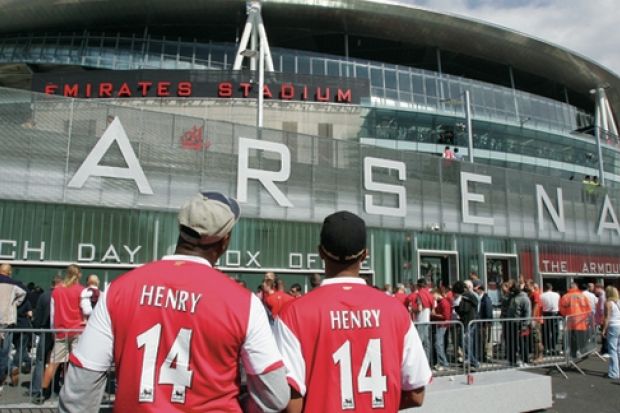London Metropolitan University plans to close seven of its 18 buildings in a bid to save £63 million, while revenue-raising measures from the remaining estate could include pints and parking spaces for Arsenal fans.
A review at London Met recommends a 21 per cent reduction of the total size of its estate. The university already plans to radically cut its undergraduate course offering.
The review says that pulling out of buildings in North and East London - even leaving them empty while still paying rent - would "deliver recurrent revenue savings and, with the disposal of freeholds, capital receipts".
It calls for "consolidation" of London Met Business School, a key focus for the institution, by moving it completely to the university's most prestigious buildings in the City.
London Met needs to move fast, the review says, and the series of faculty and departmental moves mooted should be completed by September 2013.
Paul Bowler, London Met's deputy chief executive, said the plan to remedy the university's "inefficient use of space" would go to the board this month.
"At the time of the merger between London Guildhall University and the University of North London (which formed London Met in 2002), the university had 36,000 students. We now have 29,000 students," he said.
"What I would say is that no real progress was made on rationalising the size of the estate previously. What we're doing now is a bit of catch-up."
Asked about the possibility of further reductions in student numbers, he said: "You can't say about any university what the student numbers are going to be. But we're not planning for a reduction."
The review says the plan would save £63 million over 25 years. However, Mr Bowler said it was unlikely that the full sum would be realised.
Cliff Snaith, University and College Union branch secretary at London Met, said: "We would not necessarily be opposed to a reduction in estate if it had no adverse effect on students."
The estates review recommends introducing a "space-charging" scheme to encourage departmental savings.
It also praises the renting out of a bar as a match-day venue for Arsenal fans, adding: "Are there opportunities for expanding the match-day operation, taking advantage of the (proximity) of so much of the estate to the routes taken by the match crowd? Catering? Retail? Car parking? Further venues?"
On offering estate space for billboard advertising, the report notes: "Some of the university's sites are on arterial transport routes, however this is an activity spurned by some universities for reasons of brand integrity." But London Met should "ensure the opportunity is exploited if viable", it adds.
